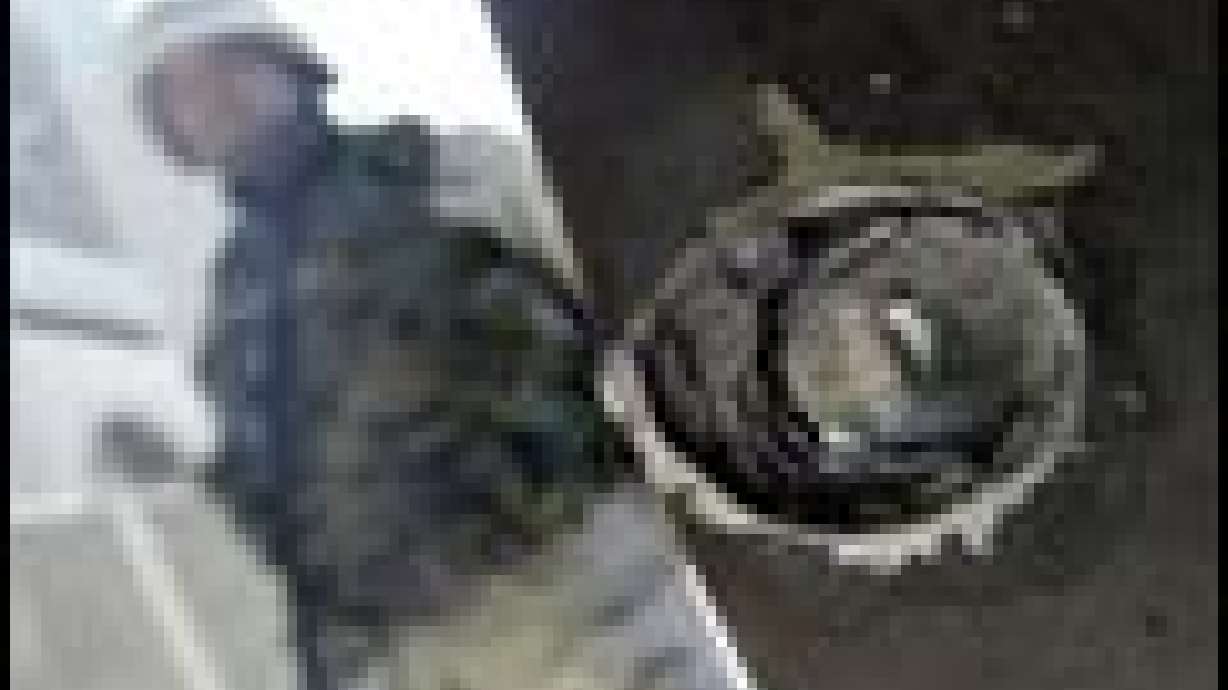Estimated read time: 4-5 minutes
This archived news story is available only for your personal, non-commercial use. Information in the story may be outdated or superseded by additional information. Reading or replaying the story in its archived form does not constitute a republication of the story.
WASHINGTON (AP) -- U.S. intelligence agencies are turning their efforts toward rounding up remaining principals of Saddam Hussein's regime who may be playing a more direct role than the now-captured former president did in running guerrilla operations in Iraq, officials say.
Some insurgents evidently kept Saddam informed about their activities "on the chance that someday he might be able once again to be their patron," Brig. Gen. Martin Dempsey, commander of the 1st Armored Division in Iraq, told CNN on Tuesday.
Intelligence stemming from Saddam's capture has led to arrests of some of Saddam's supporters who provided money to the insurgents, Dempsey said.
"Within the first 24 hours of the capture of Saddam Hussein we acted on some of the information that we were able to analyze and we captured some high-level former Baath leaders that again we consider to be the network that was providing the financial support for the cell structure in Baghdad," Brig. Gen. Martin Dempsey, commander of the 1st Armored Division in Iraq, told CNN.
A former Iraqi general was among those detained, a senior defense official said Monday, speaking on the condition of anonymity.
Officials in Washington said the interrogation effort has made little progress, however, in gaining information as to whether Iraq had weapons of mass destruction or ties to the al-Qaida terror network -- among the chief stated reasons for the U.S.-led invasion of his country. They described Saddam as compliant but unhelpful.
President Bush, at a news conference Monday, called Saddam "the kind of person that is untrustworthy, and I'd be very cautious about relying upon his word in any way, shape or form."
Dempsey, in the CNN interview, said, "I think it will take some time to actually gain any intelligence value from the man himself. I mean, let's face it. He was the artful dodger, and I think even what we get from him in the near term, we probably will have to corroborate in other ways."
But intelligence stemming from Saddam's capture is providing a clearer picture of the insurgents' operations.Some information came from Saddam's document-filled briefcase, found not far from where he was captured, said Brig. Gen. Mark Hertling, assistant commander of the 1st Armored Division.
Additional details yielded by Saddam's Saturday night capture include evidence that Saddam played a moral and financial role in the anti-U.S. resistance, Hertling said. Saddam had $750,000 when American soldiers found him Saturday hiding in a hole dug into a farmyard near his hometown of Tikrit, north of Baghdad.
"I'm sure he was giving some guidance to some key figures in this insurgency," Hertling said. "When you take down the mob boss, you don't know how much is going to come of it."
The prime leaders still at large include Izzat Ibrahim al-Douri, his son Ahmed and Hani Abd al-Latif Tilfah al-Tikriti, all of whom are thought to be involved in the guerrilla war against the U.S.-led occupation, U.S. officials said.
The elder al-Douri and Tilfah both had senior roles in Saddam's security apparatus before the war: al-Douri was vice chairman of Saddam's Revolutionary Command Council, Tilfah director of the Special Security Organization, Saddam's chief internal security agency.
Former members of Saddam's security forces are thought to comprise a significant portion of the armed resistance in Iraq. Prisoners have suggested both al-Douris are playing organizing roles, but the father may be sick, officials said.
The extent of Saddam's knowledge of the insurgency is unclear. Intelligence officials say they believe he has been too worried about survival to serve as much more than an inspiration to the resistance.
In response to his capture, officials fear resistance fighters might mount some initial strikes, aimed at proving it remains viable. But over the long term, officials hope Saddam's removal will persuade some to give up the fight.
Saddam's capture won't help U.S. troops counter guerrillas who were never loyal to the former dictator, such as religious extremists and foreign fighters, Hertling said. Many of them have entered Iraq since the invasion.
"He's answering willingly to the questions that are being asked of him," Army Lt. Gen. Ricardo Sanchez, the top military commander in Iraq, told CNN on Monday. He said Saddam wasn't "freely giving us information yet, but we'll continue to work toward that end."
(Copyright 2003 by The Associated Press. All Rights Reserved.)









